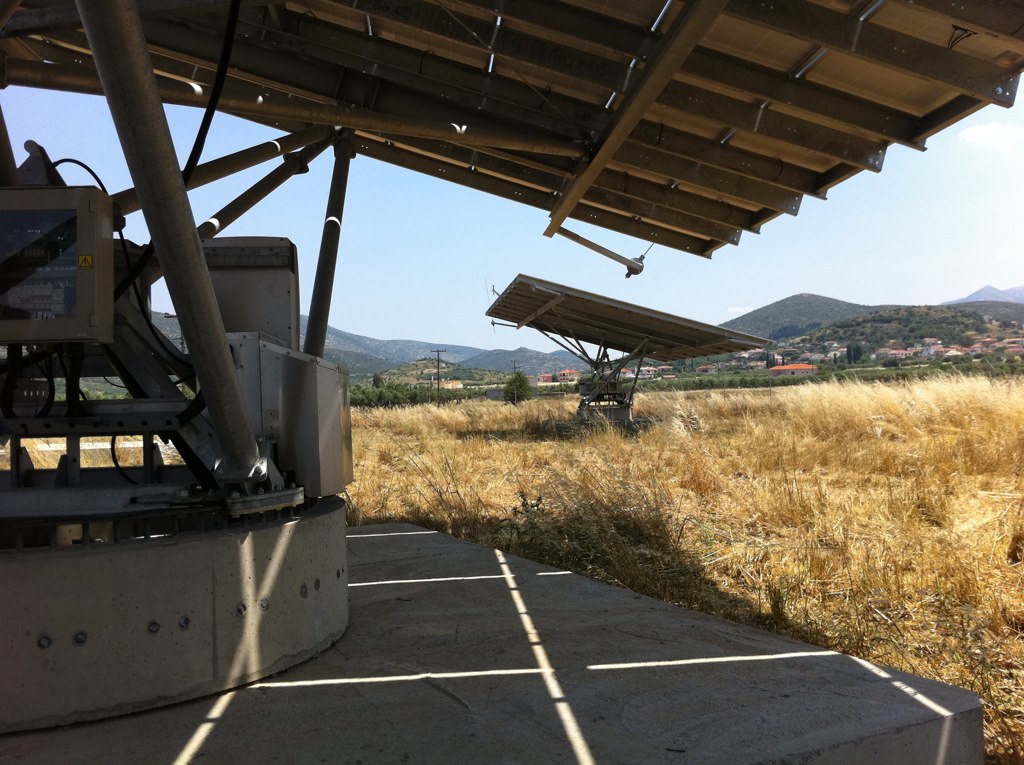Greek energy regulator the RAE has received applications seeking generation licenses for 6,135 MW of PV capacity.
In the year to December 2018, the RAE received applications to permit 7,979 MW of all types of renewable plants to generate electricity. Of that figure, 4,235 MW related to solar projects.
On top of that, the RAE received applications for a further 172 PV parks in the first three months of this year, plus 94 wind projects, seven small hydro schemes and a 1.7 MW hybrid power plant. That added up to a further 1.9 GW of solar capacity seeking licenses, 590 MW of wind and 10 MW of hydro, plus the hybrid facility on the island of Amorgos.
Vast interest
The huge interest in solar has been driven by Greece’s renewable energy auctions masterplan, which aims to procure 2.6 GW of new PV and wind capacity by the end of next year.
To date, Greece has auctioned 546 MW of PV capacity in three separate exercises and a new solar tender for systems with a generation capacity of up to 20 MW will take place on July 1, aiming to procure an extra 300 MW of capacity.
The license applications submitted to the REA indicate some of the biggest names in solar are active in Greece, including Trina Solar, Hanergy, Rensol Energy and ABO Wind AG. Greece’s most active players, Egnatia Energy and Metka, have also applied for PV generation licenses and the applications also include plans for the nation’s first energy community solar projects.
Popular content
License regime
To be eligible to bid in Greece’s renewable energy procurement auctions, investors must hold a license to generate electricity and an agreement to connect to the grid. That presents a significant hurdle to developers – few of whom meet such criteria – and is one of the main reasons all the energy auctions held last year secured less generation capacity than intended.
As a result, Greek and international developers have flocked to apply for the necessary documents – in a nation not renowned for bureaucratic efficiency.
Critics say the solution would be for the regulator to allow projects without such licenses to compete in tenders, enhancing their competitiveness and potentially lowering solar power tariffs further. However, enabling the developers of successfully tendered projects to secure licenses afterwards would pose risks to ensuring such projects were completed on time.
A more effective alternative may be for the RAE to streamline its permitting process.
This content is protected by copyright and may not be reused. If you want to cooperate with us and would like to reuse some of our content, please contact: editors@pv-magazine.com.


By submitting this form you agree to pv magazine using your data for the purposes of publishing your comment.
Your personal data will only be disclosed or otherwise transmitted to third parties for the purposes of spam filtering or if this is necessary for technical maintenance of the website. Any other transfer to third parties will not take place unless this is justified on the basis of applicable data protection regulations or if pv magazine is legally obliged to do so.
You may revoke this consent at any time with effect for the future, in which case your personal data will be deleted immediately. Otherwise, your data will be deleted if pv magazine has processed your request or the purpose of data storage is fulfilled.
Further information on data privacy can be found in our Data Protection Policy.